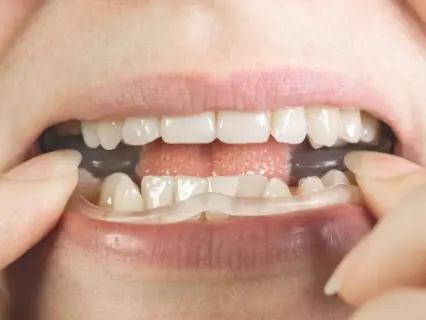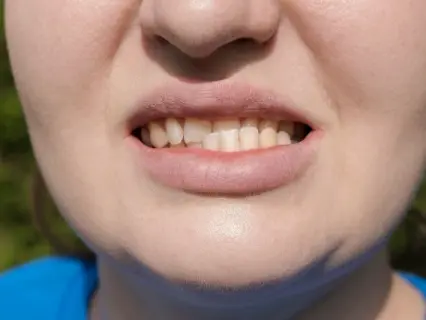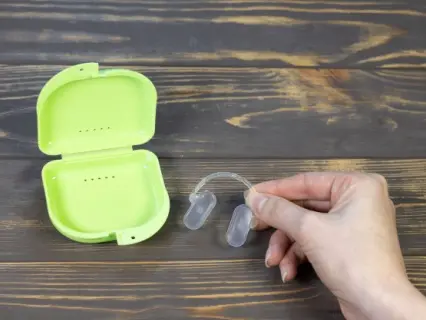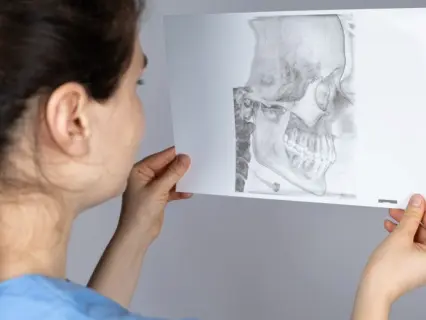Is TMD Therapy Right for You?

The TMJs (Temporomandibular Joints) are the small joints located in front of the ears that join the upper jaw to the lower jaw (mandible). In short, the TMJs enable the mouth to open and close. For some people, this movement may cause chronic pain and discomfort, known as Temporomandibular Disorder (TMD). If you find yourself in this situation, it’s time to consult the team at Philadelphia Dentistry to see if you are a candidate for TMD therapy.
Causes of TMD

Your lifestyle can also put strain on your jaw, particularly if you suffer from chronic stress or have poor posture from sitting at a desk all day. And sometimes, a person is simply born with misaligned temporomandibular joints.
Unfortunately, TMD is just one part of the problem. Patients who suffer from TMJ complications often have other oral health issues, including worn tooth enamel, cracked teeth, damaged dental work, and gum recession.
When the muscles and nerves surrounding the jaw are irritated, the TMJ and surrounding muscles can become inflamed and painful. These problems are common side effects of:
- Night-time Teeth grinding
- Clenched teeth
- Trauma to the face, head or neck
- Jaw misalignment
- Bite imbalance
- Arthritis
- Missing teeth
Your lifestyle can also put strain on your jaw, particularly if you suffer from chronic stress or have poor posture from sitting at a desk all day. And sometimes, a person is simply born with misaligned temporomandibular joints.
Unfortunately, TMD is just one part of the problem. Patients who suffer from TMJ complications often have other oral health issues, including worn tooth enamel, cracked teeth, damaged dental work, and gum recession.
Signs You Need TMD Therapy

It is easy to recognize when there is a problem with your oral health, but an issue with the TMJ can masquerade as other medical problems like chronic migraines or earaches. As a result, many people visit their primary care physician for a solution, and misdiagnosis can often occur, or you may be told that nothing is wrong at all. Medical doctors do not understand the complex functions of the jaws and teeth.
If you experience any of the following symptoms, even if some of them don’t seem related to your teeth and mouth, there is a good chance you have a TMJ problem – and the doctors at Philadelphia Dentistry can help you with a proper diagnosis and treatment:
- Clicking or popping jaw
- Headaches
- Difficulty chewing
- Pain or tenderness in the jaw
- Jaw locks in the open or closed position
- Limited jaw mobility
- Dizziness
- Ear pain, ringing or fullness in the ears
- Stiff shoulders, neck and back
What Is TMD Therapy?

Intolerable pain is typically the factor that finally encourages people to seek treatment for their jaw joint problems. Many patients are surprised to learn that TMJ issues are often related to the way the teeth touch each other. Bite imbalances can cause sore facial muscles and the majority of TMD therapy patients fall into this category. The good news? The problem is easily treatable.
TMD therapy comes in many different forms. Based on the severity of your TMJ issues, your Philadelphia dentist will perform a thorough TMD examination to determine what will work best for your needs. For most situations, a custom made TMD Orthotic is created to be worn at night to reduce pain. A small percentage of patients will need more extensive tests like MRI and CT scans to help diagnose the causes.
Most patients suffering from TMD see improvement in symptoms within a few days or weeks. Dentists also discourage patients from trying to self-treat with drug store mouthguards or internet solutions, if they recognize that they grind or clench their teeth. For example, buying an over-the-counter guard will often do more harm than good and can worsen the damage to jaw joints and muscles. Only a customized solution designed and fitted by an experienced dentist will stop discomfort and help preserve your oral health.
TMD Therapy from Philadelphia Dentistry

There are an estimated 90 million Americans who have problems with their TMJ joints, so you’re not alone if you are living with this discomfort. But you don’t have to tolerate it. Schedule an appointment with the team at Philadelphia Dentistry to find out if you need TMD therapy and get on the path to relief and comfort.


